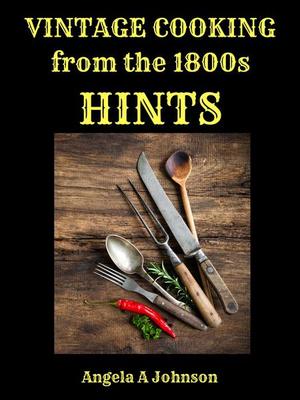Sign up now to get the most out of Books2Read
We're always making new tools to help you discover, save, and share your favorite books.
Sign up now to get updates whenever we release new features!
Discover something great at Books2Read.
We're always making new tools to help you discover, save, and share your favorite books.
Watch your email for exciting announcements and new features coming soon!
Thanks for signing up for Books2Read notifications!
Check your inbox for a confirmation email with instructions to finish signing up.



Angela A Johnson

Growing up in the 1960s, my mother and I baked cookies together and I learned about measuring and mixing. I was not, however, interested in moving past cookies since our meals were mostly TV dinners and boxed meals.
I didn't have any interest in cooking until the 90s when I finally discovered real food. (You don’t even want to know what I ate in the 80s.)
I bought cookbooks and learned to cook, and soon found myself fascinated by how people cooked and ate in the nineteenth and twentieth centuries.
When not in the kitchen (a kitchen with electricity and running water) or book store or library, I’m traveling and taking photos. I also author a blog about old time cooking and recipes, plus have begun a book series titled "In Great Grandmother's Time."
I am not ready to pack my cast iron pans and move back to the 19th century but knowing about every day life in those kitchens has made me appreciate the time, work, and ingenuity it took to feed a family.
